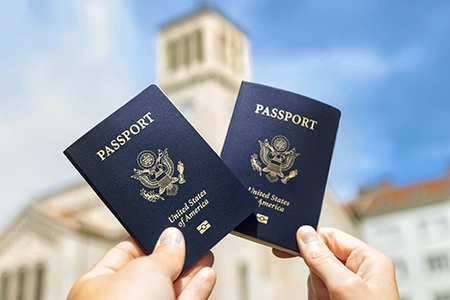The field of translation, especially in legal and medical documents, poses unique challenges beyond just knowing the language. In today’s world, there is a growing demand for certified translations such as “Turkish English certified translation” and “English Turkish certified translation.” This article highlights the complex and often ignored difficulties in certifying legal and medical translations. We will explore the specific challenges that translators face in these fields, including the need for specialised knowledge, adherence to ethical standards, and the intricacies of maintaining accuracy and confidentiality. Understanding these challenges is essential for anyone involved in or requiring certified translations, as it emphasises the importance of precision, expertise, and professionalism in these highly sensitive areas.
Professional Conduct and Ethical Considerations in Medical Translation
Medical translation is a field where precision and accuracy are critical, especially in contexts such as “Turkish English certified translation”. Medical translators are responsible for handling sensitive and often crucial medical information, and any mistake, no matter how small, can lead to misdiagnosis, incorrect treatment, and potentially life-threatening situations. Medical translators must have extensive knowledge of the medical context and source and target languages to ensure precise and accurate translations.
Medical translators must maintain confidentiality and privacy in addition to accuracy and precision. Medical documents often contain highly sensitive personal information, and it is the translator’s responsibility to respect the confidential and sensitive nature of medical records and ensure that the information is not disclosed to unauthorised parties. This principle is especially important in certified translations of medical documents from English to Turkish, as it helps to maintain the trust between the patient, medical professionals, and translators.
Do you need translation help?
If you’re seeking precise and confidential Turkish-English translation services, especially for sensitive medical documents, don’t hesitate to get a quick quote. Our certified translation services ensure accuracy and confidentiality. Click here to get a translation quote within 30 minutes during UK office hours.
Adherence to Deadlines
In the medical field, time is often of the essence. Delays in translation can result in delayed treatments and critically impact patient care. Professional medical translators, therefore, must be adept at managing their time effectively and meeting deadlines without compromising the quality of their work.
Continuous Professional Development
The field of medicine is constantly evolving, with new advancements and changes in terminology and procedures. Medical translators must engage in ongoing learning and professional development to ensure that medical translations remain current and accurate. This is essential to guarantee the accuracy of translations, especially in fast-evolving medical fields.
In conclusion, being a medical translator requires more than just linguistic skills. It involves a comprehensive understanding of medical terminology, a commitment to confidentiality and meeting deadlines, and a dedication to ongoing professional development. These factors are crucial in ensuring that medical translations, such as “Turkish English certified translation,” are linguistically precise and ethically and professionally reliable.
Collaborating with Specialized Professionals
In the realm of certified translations, particularly for medical and legal documents, the role of specialised professionals cannot be overstated. Whether it’s an “English-certified translation” of a legal contract or a “Turkish-certified translation” of medical records, the complexity and nuances of these fields necessitate collaboration with experts who deeply understand the language and the specific domain.
Importance of Specialised Knowledge
Legal and medical documents are laden with terminologies and concepts that are complex and unique to their respective fields. A translator without a background in law or medicine might struggle to grasp the full meaning and implications of such texts. This is where specialised professionals come in. They bring a wealth of linguistic and domain-specific knowledge, ensuring that the translations are linguistically accurate and contextually appropriate.
Navigating Cultural Nuances
Beyond the words on a page, cultural nuances play a significant role in interpreting and understanding information. In legal and medical settings, misunderstandings can have serious consequences. Specialised translators are trained to recognise and effectively translate these nuances, bridging cultural gaps that might otherwise lead to misinterpretation or even legal disputes.
Meeting Legal and Ethical Standards
Legal and medical fields are governed by strict standards and regulations, which also extend to translations. Certified translators in these areas are well-versed in the relevant legal and ethical requirements. Their expertise ensures that translations meet the necessary linguistic standards and comply with legal and ethical guidelines, safeguarding the interests of all parties involved.
Hire a Chartered Linguist
Are you in need of a Turkish English certified translation from a chartered linguist? We provide high-quality, affordable, and timely services for all your legal and medical document translation needs. Contact us today for a certified translation that you can trust.
The Role of Collaboration
Legal and medical translations are often complex and require a collaborative approach. Translators often work closely with legal experts, medical professionals, or other specialised consultants to ensure accurate and reliable translations. Collaboration plays a crucial role in delivering translations that are not only accurate but also legally and medically sound.
In certified translations, collaborating with specialised professionals is essential for navigating the complexities of legal and medical documents. Their expertise guarantees that translations like “English Turkish certified translation” or “Turkish English certified translation” are linguistically accurate and meet the specific requirements of these highly specialised fields.
Using translation software and tools has become increasingly significant in legal translation. This is particularly relevant in scenarios like “Turkish English certified translation” of legal documents, where precision and consistency are paramount. These technologies offer numerous benefits but also require certain considerations.
Enhancing Accuracy and Consistency
One of the primary advantages of using translation software in legal translation is the enhanced accuracy and consistency it brings to the process. Tools like translation memory and terminology databases help maintain consistency across various documents. This is crucial in legal translation, where even slight term variations can have significant implications. Using these tools, translators can ensure that specific legal terms are translated consistently throughout all documents.
Streamlining the Translation Process
Translation software and tools also play a vital role in streamlining the translation process. They allow for more efficient handling of large volumes of text, a common scenario in legal work, such as contracts or case documents. These tools can automate certain aspects of translation, reducing the time and effort required to complete the task and thereby improving productivity.
The Need for Human Expertise
Despite the advantages of translation software, human expertise remains critical, especially in the “English Turkish certified translation” of legal texts. Legal language often involves nuances and subtleties that software may not fully capture. The context, tone, and intent behind legal texts require a human translator’s insight to ensure that the translation accurately reflects the original document’s meaning and purpose.
Balancing Technology with Skill
Technology has played a supportive role in the field of translation. However, translators’ skills and judgment are indispensable and cannot be replaced by technology. They must carefully balance the use of translation tools with their expertise to ensure that the final translation is technically accurate and contextually appropriate. This balance is particularly crucial in legal translation, where the accuracy of the translation can have significant legal implications.
Translation software and tools, such as those used in “Turkish English certified translation,” have significantly advanced the field of legal translation. However, these tools are best used as aids rather than replacements for human translators. The combination of advanced technology and human expertise ultimately guarantees legal translations’ accuracy, reliability, and appropriateness.
Challenges Specific to Legal Document Translation
Translating legal documents, such as in “English Turkish certified translation,” is a task with unique challenges. These challenges stem from the nature of legal language, the consequences of inaccuracies, and the specific requirements of legal systems. Understanding these challenges is crucial for anyone involved in translating legal documents.
Navigating Complex Legal Terminology
Legal documents are characterised by complex and often archaic terminology. This specialised vocabulary can be difficult to translate accurately, as it often lacks direct equivalents in other languages. Translators must have a profound understanding of legal terms in both the source and target languages and their legal implications. This is particularly challenging in “Turkish English certified translation,” where differences in legal systems may further complicate the process.
Ensuring Absolute Accuracy
In legal document translation, there is no room for error. Even minor inaccuracies can change the meaning of a document and potentially lead to legal disputes or misinterpretations. This requires translators to be meticulous and pay close attention to every detail. The translator must ensure that the translated document reflects the intent and exact meaning of the original text.
Adapting to Different Legal Systems
The legal systems of different countries vary significantly, and legal documents often reflect these systemic differences. Translators must be linguistically proficient and understand the legal systems relevant to both the source and target languages. This knowledge is essential for ensuring that the translation is linguistically accurate and legally applicable.
Dealing with Confidentiality and Ethical Issues
Legal documents often contain sensitive and confidential information. Therefore, translators must maintain strict confidentiality and adhere to ethical standards. This involves handling sensitive information responsibly and ensuring it is not disclosed inappropriately.
Handling Cultural Differences
Cultural differences can have a significant impact on legal translations. Legal concepts and practices common in one culture may not be familiar or interpreted differently in another culture. Therefore, the translator must deeply understand the cultural context to ensure that the translation accurately reflects it.
Translating legal documents presents specific challenges, especially in the case of “English Turkish certified translation.” It requires a high level of expertise, precision, and ethical conduct. Translators must handle complex legal terminologies, ensure absolute accuracy, adapt to legal systems, deal with confidentiality issues, and address cultural differences. These challenges underscore the importance of engaging skilled and specialised translators in the legal translation field.
25 Years in Business
For all your Turkish English certified translation requirements, rely on our 25 years of industry experience. We offer fast, quality service and have expertise in a variety of fields including law, finance, banking, and management. Click Get a Quote to learn how we can assist with your translation needs.
Knowledge and Skills Required for Legal Translation
Legal translation, encompassing tasks like “Turkish English certified translation,” demands unique skills and knowledge from translators. This is not just any translation work; it requires a deep understanding of legal concepts and language, linguistic precision and cultural awareness. Here, we explore the key knowledge and skills essential for effective legal translation.
Profound Legal Knowledge
First and foremost, a thorough understanding of legal terminology and concepts is paramount. Translators must be familiar with the legal systems of both the source and target languages. This knowledge is critical for translating legal documents accurately and ensuring they are relevant and compliant within the respective legal frameworks. For instance, in “English Turkish certified translation,” the translator must understand the nuances of English and Turkish legal terms and practices.
Linguistic Expertise
Legal translators must possess an exceptional command of the source and target languages. This includes a deep understanding of grammar, syntax, and vocabulary. Legal language is often formal and complex, requiring precise word choice and sentence structure to convey the exact meaning of the original text.
Attention to Detail
The stakes are high in legal translation, where even minor errors can have significant implications. Translators must be meticulous, paying close attention to every aspect of the text, from terminology to punctuation. This attention to detail ensures that the translation accurately reflects the intent and legal implications of the original document.
Cultural Competence
Understanding the cultural context of both the source and target languages is crucial. Legal concepts and practices can be deeply rooted in a culture’s history and societal norms. Translators must be culturally aware to accurately interpret and convey these concepts in the translated document.
Ethical Integrity
Legal translators must adhere to high ethical standards. This includes maintaining confidentiality, avoiding conflicts of interest, and ensuring impartiality. They must respect the sensitive nature of legal documents and handle them with the utmost professionalism.
Adaptability and Research Skills
The legal industry is constantly evolving, and translators must stay updated with the latest laws and legal terminology developments. Strong research skills and adaptability are essential to keep up with these changes and to ensure that translations remain accurate and relevant.
Legal and medical translations, such as “Turkish English certified translations,” require extensive, multifaceted knowledge and skills. Legal translators must possess profound legal knowledge, linguistic expertise, meticulous attention to detail, cultural competence, ethical integrity, and adaptability. These attributes are crucial in ensuring that legal translations are linguistically accurate and legally sound.
Further Reading
- Interpreting in Legal and Healthcare Settings, Eva N.S. Ng and Ineke H.M. Crezee



